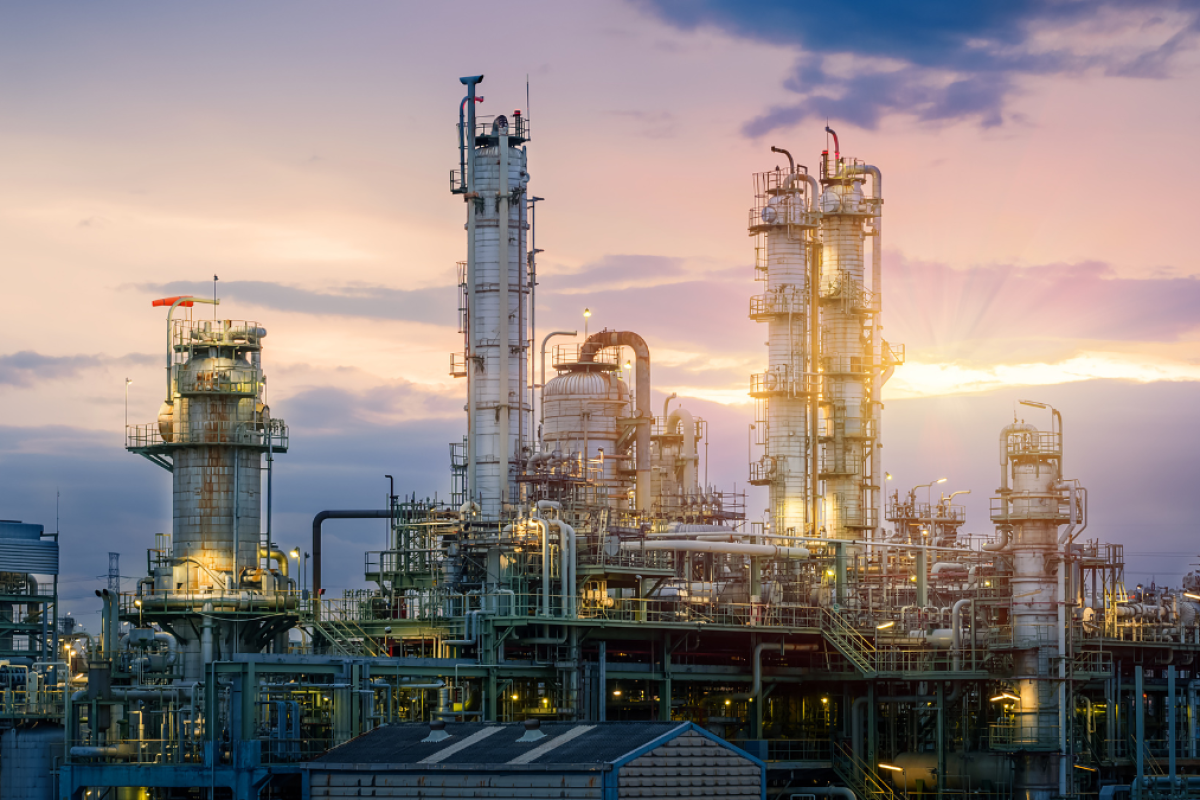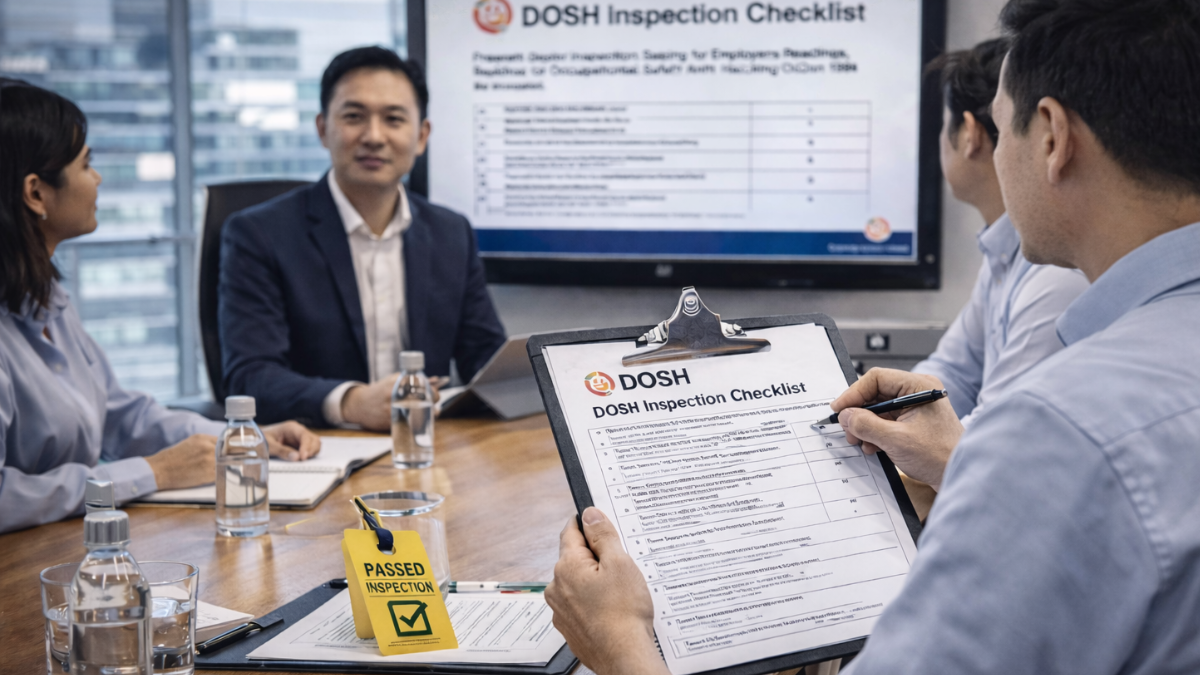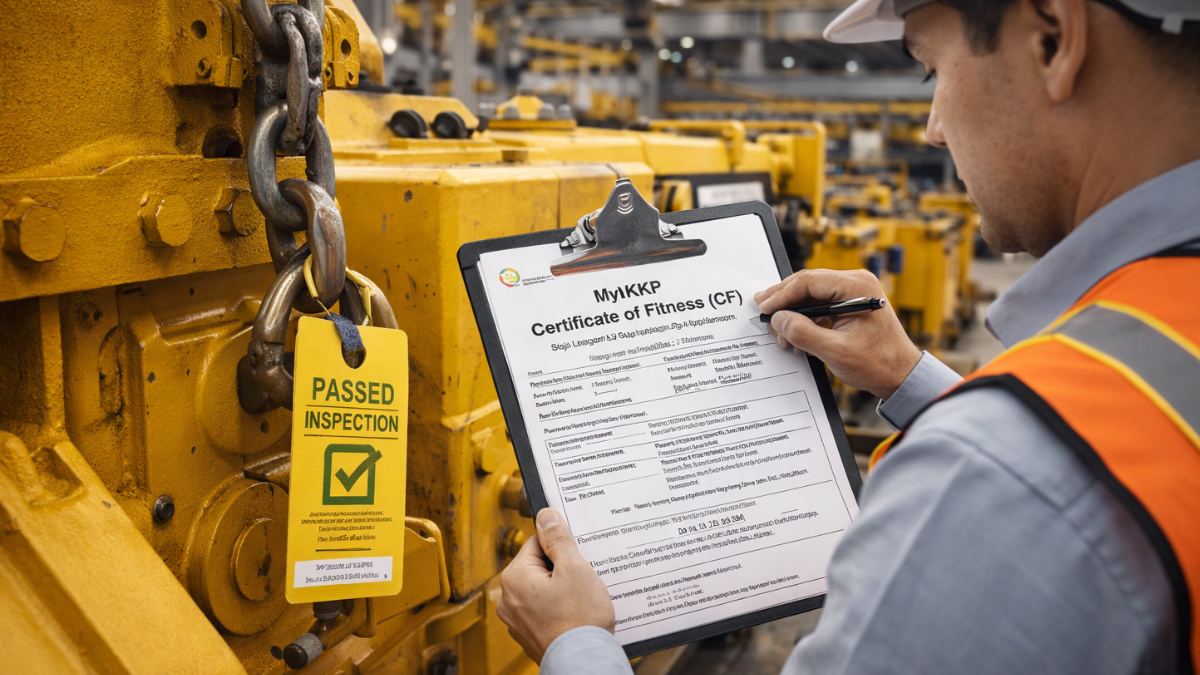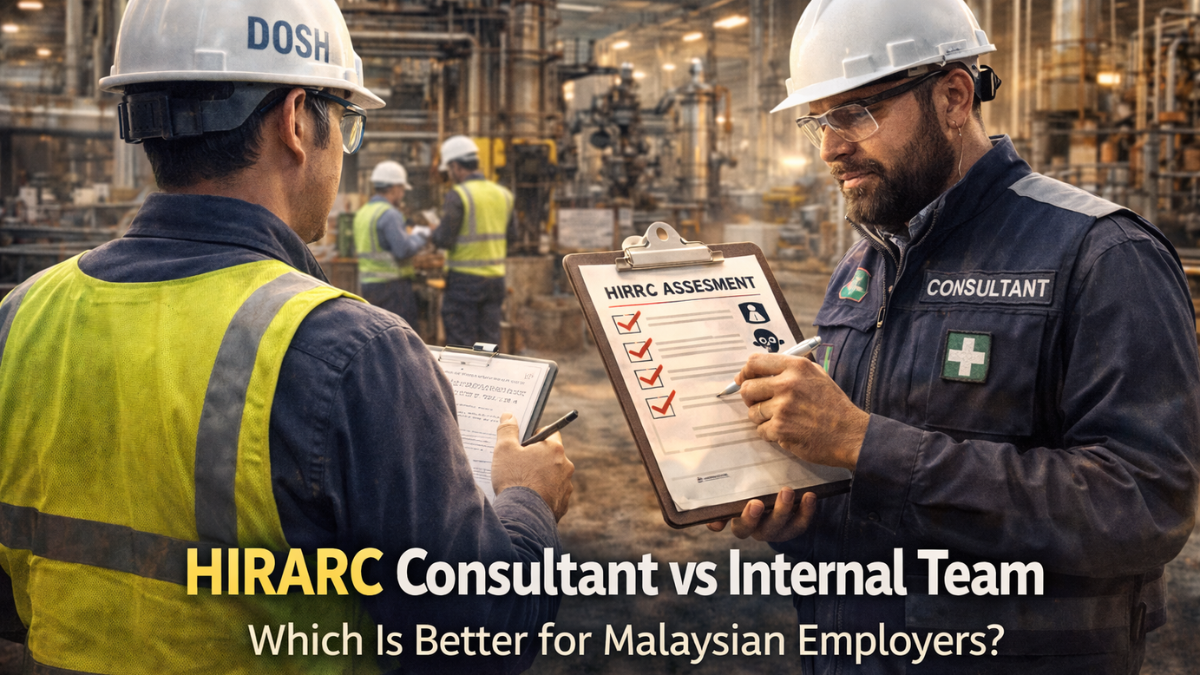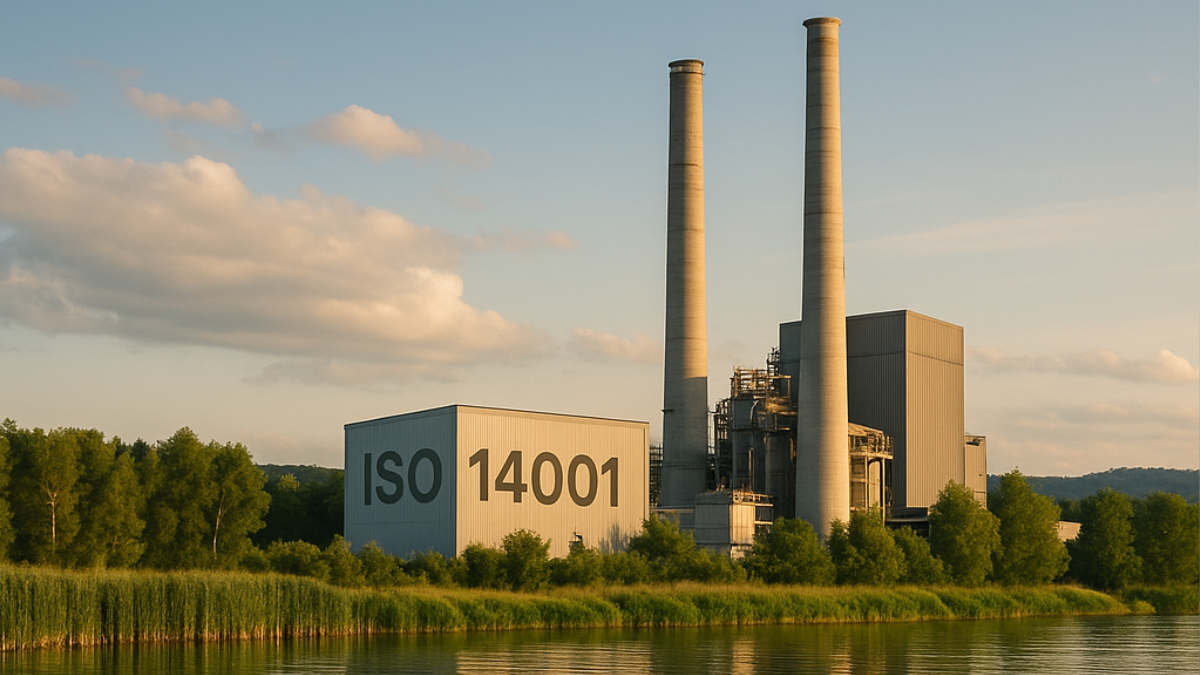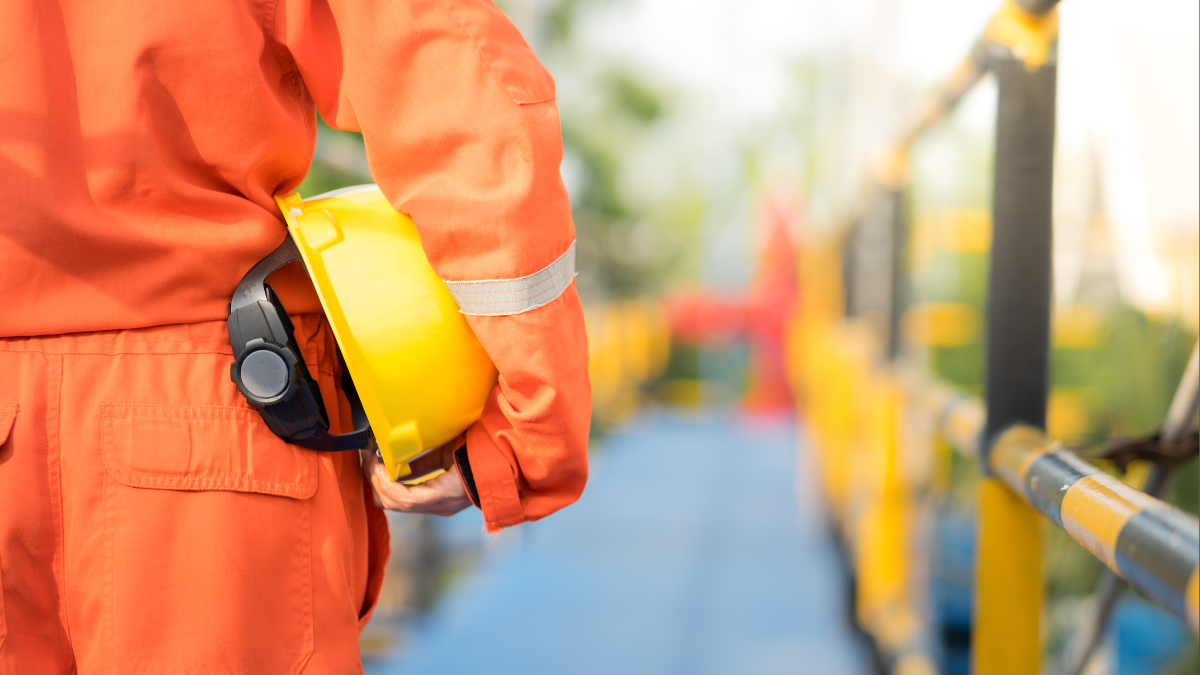Table of Contents
Key Takeaways:
- Compliance with Akta Petroleum 1984 is Mandatory, Not Optional
If your business stores, transports, or uses petroleum products, you are legally required to meet the safety standards under Akta Petroleum 1984. This includes licensing, proper storage practices, and emergency readiness.
- Most Violations Happen Due to Oversight, Not Intent
Common issues like expired licenses, missing safety signs, or untrained staff can lead to serious legal and safety consequences. Regular audits and staff training can prevent costly mistakes. - Proactive Safety Measures Protect Your Business and Your People
Conducting risk assessments, preparing emergency response plans, and keeping documentation updated can help you avoid penalties, reduce hazards, and build a safer workplace.
Why Petroleum Safety Compliance Matters
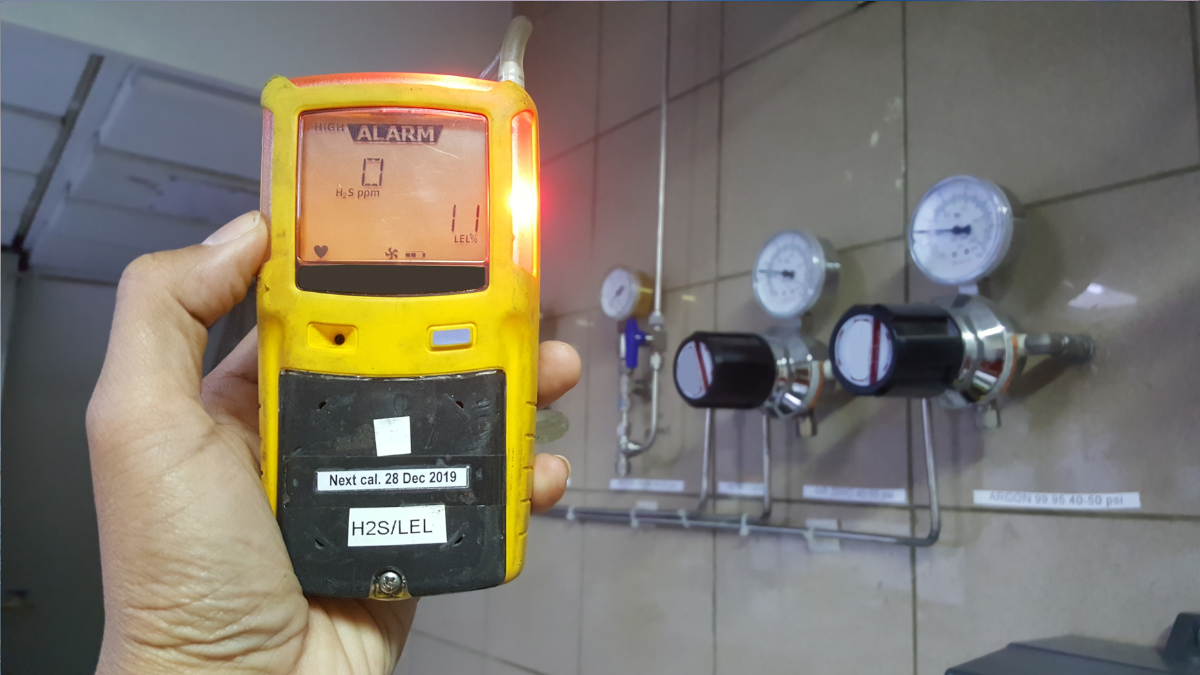
Petroleum is dangerous when handled without care. A single leak or spark can cause major damage. If you work with petrol, diesel, or LPG, safety must be your daily routine.
You are responsible for safe storage, transfer, and use. This applies to petrol stations, refineries, storage facilities, and transporters.
Ask yourself:
Are your storage tanks inspected?
Do your workers know the safety steps?
Are your licenses current?
Malaysia’s Legal Safety Framework for Hazardous Substances
Malaysia enforces strict laws to control hazardous materials. Petroleum falls under this category due to its flammable and explosive nature.
One of the main laws covering this area is the Akta Petroleum (Langkah-langkah Keselamatan) 1984. It was created to regulate how petroleum is stored, transported, and used.
Other related laws may include:
Introduction to Akta Petroleum (Langkah-langkah Keselamatan) 1984
This Act applies to:
Storage facilities
Transportation by road or pipeline
Refueling stations
Industrial users of petroleum
Key safety requirements include:
Licensing for storage and transport
Safe distance from public areas
Clear safety signage
Fire prevention plans
Emergency response measures
Officers from the Ministry can inspect your site. If they find violations, they may suspend your license or take legal action.
Ask yourself:
Are your current safety documents complete?
Are your workers trained for fire or spill scenarios?
Advanced HSE Solutions works with fuel station operators, logistics firms, and industrial users. We offer full compliance checks, staff training, and licensing support.
Take the next step. Book a site audit. Make sure your petroleum handling meets the law.
What is Akta Petroleum 1984?
If your business deals with petroleum, you must know this law.
The full name is Akta Petroleum (Langkah-langkah Keselamatan) 1984.
It sets out safety rules for storing, handling, and transporting petroleum products in Malaysia.
This includes:
Petrol
Diesel
Kerosene
Liquefied petroleum gas (LPG)
The law applies to petrol stations, depots, tankers, and industrial sites using fuel in large amounts.
Who Enforces This Law?
The Act is enforced by the Ministry of Domestic Trade and Cost of Living (KPDN).
Their officers can:
Inspect your premises
Ask for safety documents
Revoke licenses if you break the rules
File charges in court
They work closely with other agencies like:
Fire and Rescue Department
Local authorities
Department of Occupational Safety and Health (DOSH)
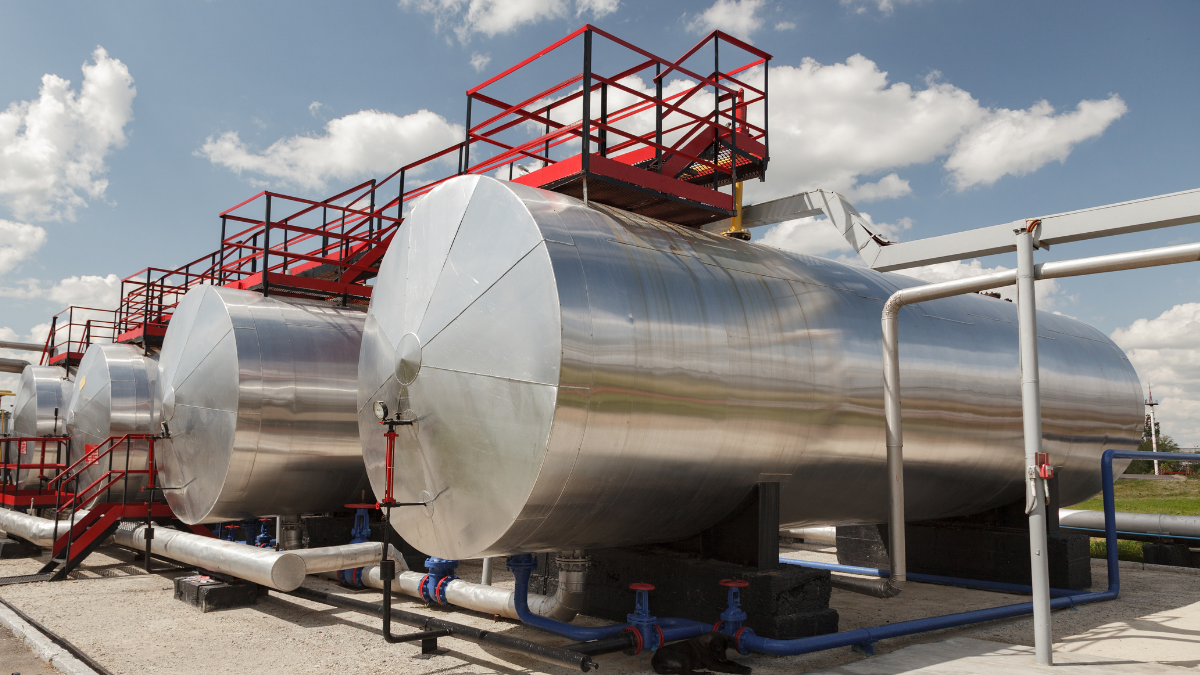
What is the Main Purpose of the Act?
The goal is to keep people safe.
Petroleum is flammable. It can cause fires, explosions, and toxic leaks. A small mistake can harm lives, property, and the environment.
The Act helps prevent this by making sure:
Fuel is stored in proper tanks
Facilities follow minimum safety distances
Emergency plans are in place
Only trained staff handle petroleum
Sites carry valid licenses
Ask yourself:
Do you meet all of these conditions?
Are your current systems in line with this Act?
If not, you could face serious penalties.
Advanced HSE Solutions helps you stay within the law. We audit your site, fix compliance issues, and help renew licenses.
Don’t take risks with petroleum. Take control with a compliance plan that protects your team and your business.
Scope of the Act
The Akta Petroleum (Langkah-langkah Keselamatan) 1984 covers all key activities involving petroleum.
It applies to businesses that:
Store petroleum
Transport it
Handle or use it in daily operations
If you run a petrol station, the Act applies to you.
If you operate a fleet that transports fuel, you must follow this law.
If your factory uses diesel or LPG in its process, you are included.
The law applies across sectors:
Retail (petrol stations, mini marts selling LPG)
Logistics (fuel tankers, pipelines)
Manufacturing (factories using petroleum-powered machinery)
Agriculture (diesel for heavy equipment)
Construction (fuel storage on site)
Petroleum, under this Act, includes:
Petrol
Diesel
Kerosene
Liquefied Petroleum Gas (LPG)
Any flammable oil used for fuel
The Act is not limited to large companies.
Even small operators must comply if they store or use fuel beyond certain limits.
This means:
You need proper storage tanks
You must maintain minimum safety distances
You should prepare for fire and leak emergencies
The Act covers fixed installations and mobile operations.
It doesn’t matter if the fuel is stored underground, in barrels, or on moving vehicles.
As long as the volume and use fall under the law, compliance is required.
Ask yourself:
Is your fuel kept in approved containers?
Have you registered your storage with the right authority?
Understanding the scope helps you take the first step toward legal compliance.
The risks are real. So is your responsibility to follow the law.
Key Safety Measures Mandated by the Act
The Akta Petroleum (Langkah-langkah Keselamatan) 1984 outlines strict safety rules for anyone handling petroleum.
These rules are not suggestions.
They are legal requirements.
Safety Zones and Distances
You must keep a safe distance between fuel storage and nearby buildings or public areas.
This reduces the risk of fire spreading in case of an accident.
Distances depend on the type and volume of fuel stored.
You may need to relocate tanks or limit how close vehicles can park.
Licensing for Storage and Transport
Before you store or move petroleum, you need a license.
This applies whether you operate a depot, a fleet of tankers, or an industrial facility.
Without a valid license, your business is in violation.
Enforcement officers may shut down operations or press charges.
Fire Prevention and Emergency Readiness
You must install:
Fire extinguishers
Alarm systems
Emergency shut-off controls
Access to water or foam for firefighting
You also need a written emergency response plan.
All workers must know what to do in case of a fire or leak.
Proper Signage and Labeling
Warning signs must be clear, visible, and in the right language.
Storage tanks must display contents, hazard symbols, and safety instructions.
This helps prevent accidental ignition or misuse of fuel.
Activity Restrictions Near Storage Areas
No open flames.
No smoking.
No welding or cutting near tanks or pipes.
These actions are banned to prevent explosions.
Ask yourself:
Are all these measures in place at your site?
Are your staff trained to enforce them daily?
If not, you may be exposed to unnecessary risks.
Offences and Penalties Under Akta Petroleum 1984
The law doesn’t just set rules.
It also defines clear penalties for breaking them.
Under Akta Petroleum (Langkah-langkah Keselamatan) 1984, violations can lead to:
Heavy fines
Jail time
Suspension or cancellation of your license
These are not minor consequences.
They can shut down your operations or lead to criminal records.
Unlicensed Handling or Storage
If you store or transport petroleum without a valid license, you’re in breach of the law.
This applies even if the storage is temporary or for internal use only.
Licenses must be renewed and approved by the correct authority.
Failure to do so can result in immediate enforcement action.
Violating Safety Distance Regulations
The law requires safe distances between fuel tanks and nearby structures.
If your setup does not meet this rule, you are exposed to both safety risks and legal penalties.
This is one of the most common violations during site inspections.
Obstruction of Authorized Officers
If you deny access to enforcement officers or refuse to provide requested documents, you’re committing an offence.
Inspectors have the legal right to:
Enter your premises
Check compliance
Issue stop-work orders if needed
Interfering with this process can lead to prosecution.
Example: Section 5 Violation
Section 5 covers basic safety obligations.
Non-compliance under this section can lead to court action.
Many enforcement cases begin with failure to meet this clause.
Ask yourself:
Are your licenses up to date?
Would your site pass an unannounced inspection?
If you’re unsure, it’s time to take a closer look.
The cost of non-compliance is higher than you think.
Role of Employers in the Petroleum Industry
If you store, transport, or use petroleum in your business, you carry legal responsibilities.
Employers are expected to take clear and consistent actions to keep the workplace safe.
These are not optional.
They are part of your duty under the Akta Petroleum 1984.
Conduct Risk Assessments and Safety Audits
Start by identifying hazards.
Look at how petroleum is stored, moved, and used on-site.
Assess the risks of leaks, fires, or explosions.
Check your equipment and safety systems.
Do regular audits to see if your safety plan still works.
Update it when your operations change.
Appoint Competent Safety Personnel
You need trained people to oversee petroleum safety.
This could be a:
Site Safety Supervisor
Safety and Health Officer
Emergency Response Team member
These staff must understand the law and be ready to act during incidents.
Train Your Workers
Every employee handling petroleum must know:
How to store and handle fuel safely
What to do in an emergency
What not to do near tanks or fuel lines
Training should be:
Regular
Easy to understand
Aligned with the law
Never assume your staff “already know.”
Maintain Proper Documentation and Licensing
Keep your:
Storage licenses
Transport permits
Safety records
Emergency procedures
These must be available during inspections.
Missing or expired documents can lead to penalties.
Ask yourself:
Do you have proof of recent training?
Is your safety file up to date?
A proactive employer reduces both legal and operational risks.
Safety is not a one-time task. It’s your ongoing job.
Role of Employers in the Petroleum Industry
If you store, transport, or use petroleum in your business, you carry legal responsibilities.
Employers are expected to take clear and consistent actions to keep the workplace safe.
These are not optional.
They are part of your duty under the Akta Petroleum 1984.
Conduct Risk Assessments and Safety Audits
Start by identifying hazards.
Look at how petroleum is stored, moved, and used on-site.
Assess the risks of leaks, fires, or explosions.
Check your equipment and safety systems.
Do regular audits to see if your safety plan still works.
Update it when your operations change.
Appoint Competent Safety Personnel
You need trained people to oversee petroleum safety.
This could be a:
Site Safety Supervisor
Safety and Health Officer
Emergency Response Team member
These staff must understand the law and be ready to act during incidents.
Train Your Workers
Every employee handling petroleum must know:
How to store and handle fuel safely
What to do in an emergency
What not to do near tanks or fuel lines
Training should be:
Regular
Easy to understand
Aligned with the law
Never assume your staff “already know.”
Maintain Proper Documentation and Licensing
Keep your:
Storage licenses
Transport permits
Safety records
Emergency procedures
These must be available during inspections.
Missing or expired documents can lead to penalties.
Ask yourself:
Do you have proof of recent training?
Is your safety file up to date?
A proactive employer reduces both legal and operational risks.
Safety is not a one-time task. It’s your ongoing job.
How Advanced HSE Solutions Can Help
If you’re unsure where your business stands in terms of compliance, getting expert help can save you time and reduce risk.
Advanced HSE Solutions supports companies that handle petroleum across various sectors.
Site Risk Assessments
We conduct detailed inspections of:
Petrol stations
Bulk fuel storage facilities
Industrial plants using diesel, kerosene, or LPG
We identify gaps in your safety setup, check if you meet the legal requirements, and provide a full report with action steps.
Emergency Response Plans and Drills
Emergencies don’t wait. You need a plan.
We help you:
Write emergency response procedures
Conduct mock drills
Train your team to react quickly
You’ll know exactly what to do during a fire, leak, or equipment failure.
Training on Petroleum Handling
We provide clear, practical training for your staff.
Your team learns how to:
Handle petroleum safely
Use firefighting equipment
Avoid actions that can cause explosions or fires
Training is available in English, Malay, or bilingual formats, and is suitable for both new hires and experienced staff.
Licensing Compliance with KPDN
Many companies struggle with paperwork.
We assist in preparing the documents you need to:
Apply for or renew your petroleum storage license
Respond to enforcement requests
Maintain legal records
Supplying Safety Equipment
We provide:
Fire suppression systems
Spill kits
Safety signs with the correct hazard symbols
Protective gear
All items meet Malaysian regulatory standards.
We don’t just audit your site.
We help you fix the problems and stay compliant.
One visit can uncover risks you didn’t know you had.
Let us help you build a petroleum safety system that protects people and meets the law.
Real-Life Scenarios: Avoiding Common Pitfalls
Mistakes in petroleum safety often stem from small oversights.
But those mistakes can lead to fires, injuries, and license suspensions.
Here are common problems we see in the field.
No Valid License
Some sites store large amounts of fuel without a proper license.
They may have applied years ago but never renewed it.
Others assume small quantities are exempt — they’re not.
A retail business storing LPG tanks without approval risks a fine or shutdown.
Unsafe Storage Setup
We’ve visited fuel storage areas where:
Tanks are placed too close to public walkways
No barriers are installed
Safety signs are missing or outdated
These issues violate the Akta Petroleum and increase the risk of accidents.
Untrained Workers
Even experienced employees sometimes don’t know basic fire safety.
One incident involved a worker using a metal object near a leaking diesel drum — unaware of the spark risk.
Training could have prevented that situation.
Missing Emergency Plans
When we ask for emergency procedures, some businesses hand over outdated or blank forms.
No drills. No checklist. No first responders assigned.
During an audit, this is a major red flag.
Case Study: Petrol Station Saved by a Pre-Inspection Audit
One petrol station owner requested a mock audit before their license renewal.
We found issues with their signage, distance clearance, and expired extinguishers.
They fixed everything within two weeks.
When the actual inspection came, they passed without any issues.
Without that review, the license might have been delayed—or worse, denied.
Avoiding penalties starts with spotting the weak points early.
Sometimes, a single overlooked detail can lead to months of costly delays.
You don’t want to find out after it’s too late.
Conclusion: Stay Safe, Stay Compliant
Petroleum safety isn’t just about rules.
It’s about protecting lives, property, and your entire business operation.
The Akta Petroleum 1984 exists to make sure everyone—from petrol station owners to industrial users—handles fuel responsibly.
Ask yourself:
Are your storage areas legally approved?
Have your staff received proper training?
Are your safety documents up to date?
If the answer is “no” or “not sure,” your operations may be at risk.
A simple site audit could reveal major problems you didn’t notice.
This is where experience matters.
Knowing the law is one thing.
Applying it to real operations is another.
You don’t need to guess.
You don’t need to fix everything alone.
Advanced HSE Solutions is here to support you with expert advice, on-site checks, and custom safety plans.
We help businesses:
Prepare for audits and inspections
Meet KPDN licensing standards
Train staff in fuel handling and emergency response
Avoid shutdowns and legal action
Don’t wait for a penalty letter or a fire incident.
Contact us now for a compliance review.
One visit could make the difference between a safe business and a costly mistake.
Take action today.
Stay legal. Stay prepared.
Protect your team, your customers, and your future.
FAQs on Akta Petroleum 1984
Q: Who needs to comply with Akta Petroleum 1984?
A: Any business that stores, transports, or handles petroleum products such as petrol, diesel, kerosene, or LPG must comply. This includes petrol stations, logistics companies, industrial facilities, construction sites, and even small businesses with bulk fuel storage.
Q: What happens if I store petroleum without a license?
A: Storing petroleum without a valid license is a legal offence. You may face fines, imprisonment, or have your operations shut down. Enforcement officers from KPDN can inspect your premises and take action immediately if you’re found in violation.
Q: How often should I review my petroleum safety procedures?
A: You should conduct safety reviews at least once a year or whenever there’s a change in your operations. This includes checking fire systems, renewing licenses, updating staff training, and making sure all documentation meets current legal standards.
Not sure where to begin?
Our team can guide you step-by-step. Contact Advance HSE Solution today to schedule a consultation or inspection service.

